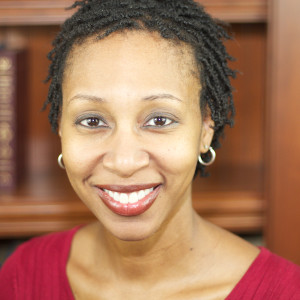 A new study led Aida Harvey Wingfield, a sociologist at Washington University in St. Louis, finds that wherever Black workers are positioned in an organization — top, middle or bottom — informs and shapes their impressions about workplace racial discrimination.
A new study led Aida Harvey Wingfield, a sociologist at Washington University in St. Louis, finds that wherever Black workers are positioned in an organization — top, middle or bottom — informs and shapes their impressions about workplace racial discrimination.
The analysis draws on interviews with Black workers employed in the health care industry. Dr. Harvey Wingfield reports that “Black doctors, who are highly placed in the hierarchy of health care facilities, focus much more on structural and organizational discrimination — educational disparities, biases in hiring policies. In contrast, Black nurses, who occupy a lower place in the hierarchy, observe both organizational and individual racial discrimination. They, too, focus on biases in hiring, but are also attuned to personal discrimination from supervisors. Black technicians, who are still lower in the organizational hierarchy, mostly describe individual discrimination. They see how supervisors discriminate against Black technicians, but are not privy to how organizational rules create widespread differences for Black workers.”
Dr. Harvey Wingfield explains that “Black individuals encounter an enormous amount of racial discrimination in the workplace, including exclusion from critical social networks, wage disparities and hiring disadvantages. But we don’t know how to explain what kinds of discrimination seem most salient to Black workers themselves, or why perceptions of discrimination vary within this racial group. This study breaks new ground by showing that Black workers who are highly positioned in an organization see different kinds of racial discrimination than those closer to the bottom.”
Professor Harvey Wingfield is the Mary Tileston Hemenway Professor of Arts & Sciences at Washington University. Her latest book is Flatlining: Race, Work, and Health Care in the New Economy (University of California Press, 2019). Dr. Harvey Wingfield is a graduate of Spelman College in Atlanta, where she majored in English. She holds a master’s degree and a Ph.D. in sociology from Johns Hopkins University in Baltimore.
The study, “Getting In, Getting Hired, Getting Sideways Looks: Organizational Hierarchy and Perceptions of Racial Discrimination,” was published in the American Sociological Review. It may be accessed here.













Very interesting. As a senior manager in IT and consulting who has experienced and witnessed all of this, I would love to dig deeper into ALL classifications of discrimination described here (hiring; personal; structural; organizational) and how the intensity or nature of each changes as we move up the ladder.